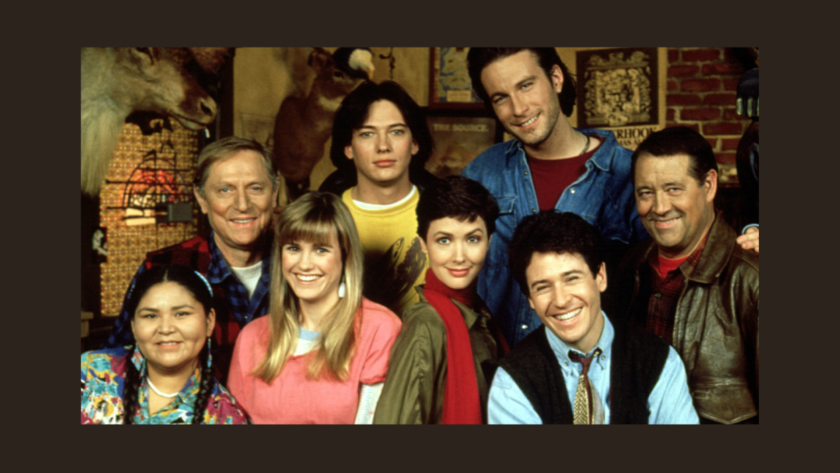Katherine Press – Hi Simon. Would you give us a brief introduction to BBC Writersroom, and what it is you do there?
Simon Nelson – BBC Writersroom exists to look for, develop and champion new writing talent across the UK. As part of the BBC’s remit to reflect the whole of the country, we have offices in London, Salford, Glasgow, Cardiff and Belfast;and we also travel across the regions on a regular basis. We are a relatively small team – only about 15 of us across the five offices – we’re a fairly lean machine! Although we sit within Drama Commissioning, we are in fact a cross-departmental unit, which means we also work across Comedy, Children’s, Radio, Television and Online content.
Anne Edyvean, Head of Writersroom, recently published a marvellous article on our blog tackling all the questions she gets asked about Writersroom, which I really recommend that anyone intending to submit should read. It’s a pretty comprehensive piece, and I can’t imagine it leaves many things unanswered. What I will say, which is worth repeating, is that the number one misconception about what we do at Writersroom is that we don’t produce work. We’re not a production company – that’s not within our remit – but what we do produce (we hope) are great writers.
What I mean by that is that if we read a cracking script that’s submitted through Writersroom, it’s extremely unlikely that that script will ultimately get made. (I should say that this is the general rule for spec scripts – only very rarely indeed do they end up being produced.) However, having seen that wonderful script, we will want to work with that writer to develop them, to develop their skills and introduce them to the various parts of the corporation which use scripted work so that they are in the best possible position to pursue their writing career.
As part of that work, we partner with all the scriptwriting departments in the BBC to find out what sort of writers they’re looking for, what their projected trends will be and the type or style of writer they think they’re going to need in one, three, five years’ time. We’re also very public-facing – we hold lots of workshops and talks.
KP – And could you tell us a little bit about your role at Writersroom?
SN – As Development Executive, I work with all the Writersroom’s UK offices in our development of writers at every stage in their career. But I would say, when you’re approaching people about your writing, don’t get too hung up on titles as they’re generally not as grand as they sound! Every year, on average, we read about 13,000 scripts. Not always the whole of those scripts, but at least the first 10 pages. And those scripts might be film, radio, sitcom, theatre, web series, anything – again, because we’re not looking for the project, but we’re looking for the writer. That gives you some idea of the kind of competition out there.
Professional screenwriting isn’t an academic exercise, it’s a production-led process, and I think it’s important that people who work with writers have experience in seeing a script through to fruition as a finished programme.
– Simon Nelson
However, the good news is that I work with a team of people who love reading scripts, who love finding new writers and new voices, and we read everything we’re submitted. Furthermore, all the producers in Writersroom have a practical production background. Professional screenwriting isn’t an academic exercise, it’s a production-led process, and I think it’s important that people who work with writers have experience in seeing a script through to fruition as a finished programme.
KP – You mentioned you read the first 10 pages. Is that the standard policy for Writersroom?
SN – Yes, that’s the first stage if you like. If the first 10 pages grab us, that script will go back on the pile, and we will read some more. Obviously, that’s partly for time management purposes, but it’s also because we believe if the work hasn’t hooked us within those first 10 pages, then it’s not going to. Some people would argue with that, but that’s how we operate, and it’s also a pretty standard strategy across the industry. It comes down to hooking your audience (or reader, in this case) and keeping them interested. If you were watching something that hadn’t interested you after 10 minutes, would you keep watching? I suspect not.
KP – So, what makes you keep reading after those first ten pages?
SN – I’d love to tell you that most of the scripts that are rejected by me are badly written, but they’re not. Most of them are competent – they’re well-constructed, they follow the rules – but they just aren’t inspiring. They don’t have that unique, individual voice that makes a writer a great artist. To stand out, the writing really needs to sing. And it goes without saying that it has to be the best work you can possibly do.
KP – The 13,000 scripts you mentioned: do they all come through the submission windows?
SN – No, probably around 7,000 come through the windows – nearly 4,000 for drama and just under 3,000 for comedy. The rest come from the other opportunities co-ordinated by Writersroom – awards and schemes, for example, the Caroline Aherne Bursary for comedy writer-performers; or the Alfred Bradley Award for radio writing.
Don’t try and second-guess us in terms of what you think we or the industry are looking for. Write what you want to write – not the new Fleabag, or Bodyguard with a twist.
– Simon Nelson
KP – OK, Simon, could we have your top tips for writers planning to submit their work to Writersroom?
SN – Here are my essential tips:
- Don’t waste time with tonnes of description or set up. Get stuck into the action. Have you ever come into the cinema late and not been able to catch up with what’s going on? I doubt it! I’d be willing to bet you were able to piece things together. Great stories start ‘in media res’ – ‘in the middle of things’. Hit the ground running so we can see your storytelling at its best.
- Don’t try and second-guess us in terms of what you think we or the industry are looking for. Write what you want to write – not the new Fleabag, or Bodyguard with a twist. Often people who try to do so end up with a hollow version of what they’re trying to emulate. Write something that’s uniquely you. Write the script that no-one but you could write.
- If you’re writing for the screen, don’t forget that film and television rely on visuals, so think in terms of visual storytelling; radio and theatre tend to be more literate, so use your words to paint a picture. Whichever one you’re writing for, make sure you understand the strengths of your chosen medium.
- Linked to that, don’t fall into the trap of having your characters become a vehicle for a point or a message you want to make. It’s instantly apparent because your characters cease to live and breathe
- Surprise your audience – humans like to be surprised!
- Upload your script by 5pm on 7 January. But, if at all possible, please don’t leave it to the last minute and then try to upload your script at 4.55pm on 7 January! Give yourself time.
KP – What other things do you wish you could tell new writers?
SN – When developing your spec portfolio, think in terms of writing varied scripts that showcase your range. Don’t write a whole series – write a pilot. My heart sinks when people say they’ve got six complete episodes of something. If you’re going to take that much time over it, write six different episodes – you’ll increase your chances of people liking one of them, and you’ll become more versatile as a writer.
I read a script once, the first episode of a six-parter, that was incredible. I met the writer and was dying to know what happened next, and she told me she didn’t know! She had just written a cracking first episode. Frankly, if the first episode is so brilliant that someone wants to take it into development, then they’ll pay you for the next ones. If the first episode isn’t any good, neither will the rest be, and then you’ll have really wasted your time. Plus there’s always the possibility that someone else somewhere will have written something terribly similar and it’s just gone into pre-production – this scuppers any chance of yours getting made, and it happens more often than you’d think!
If you want to write for television, watch television. For radio, listen to radio. Partly because you’ll understand how it works, partly because you’ll know what else has been on, and also because you simply get into the swing of things.
Think about all the options when it comes to formats for your work. What’s the best format for this particular idea? It might be television, but it might be radio, film, theatre…
– Simon Nelson
When you’re writing don’t forget to ask yourself ‘who is this for?’ I read things sometimes and can’t help thinking ‘who would watch this?’ It’s not that it’s bad, but it’s just hard to see where it would find an audience. And I don’t mean pandering to an audience in the sense of writing what you think they want to hear; but be conscious of who wants to know about this story
Think about all the options when it comes to formats for your work. What’s the best format for this particular idea? It might be television, but it might be radio, film, webisodes, theatre, even a novel. And people often forget that there’s a whole industry for Children’s entertainment. Children are just another audience, and if you can write for them, they’re a great audience to write for. Although be warned: if you’ve limited time to hook an adult audience, you’re even more up against it when it comes to Children’s – you’ve probably got about six seconds to grab their attention!
And finally… Persistence and resilience. You’ll have heard it before, but you’ll need them in spades if you’re to succeed in this game.
KP – Thanks so much Simon, and good luck everyone with your submissions.
Simon Nelson is Development Executive for BBC Writersroom in London. Simon looks after writer development and talent searches, development schemes, partnerships and production projects including the Continuing Drama Directors’ scheme and Writers’ Festival.




